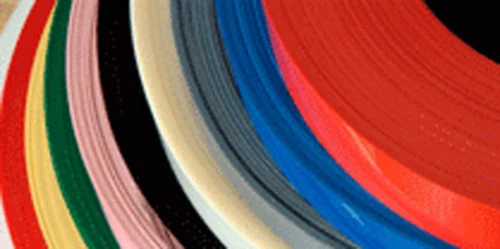Types of Thermoplastic Extrusion
Plastic extrusion involves a top-mounted hopper system that feeds thermoplastic resin through an extruder barrel. With the help of heat and pressure, the plastic takes the shape of the mold. Manufacturers can incorporate additives like colorants and UV inhibitors to enhance the appearance or performance of the final product.
Extrusion works with a variety of thermoplastic materials, including:
Teflon PTFE
- Nylon (6, 6/6, MDS)
- Polypropylene (PP)
- Low-density polyethylene (LDPE)
- High-density polyethylene (HDPE)
- High-impact polystyrene (HIPS)
- Flexible polyvinyl chloride (PVC)
- Acrylonitrile butadiene styrene (ABS)
- Thermoplastic elastomers (Santoprene®)
- Polyethylene terephthalate glycol (PETG or Codar®)
There are five main types of plastic extrusion methods that use different types of extrusion dies. We will describe the benefits and applications of each type of extrusion to help you determine the ideal method for your application.
Sheet Extrusion
Sheet extrusion works by extruding a molten plastic material in powder, flake, granule, or pellet form through a die into a flat shape. Rollers cool the sheets, which can be between 0.2 and 15 mm. Thin sheets are ideal for consumer products, while thicker sheets are best for industrial or commercial applications. The following are examples of applications for these extruded flat sheets:
- Washers
- Spacers
- Discs
- Fasteners
- Gaskets
- Insulators
- Shims
- Tags
- And more
Thermoplastic Extrusion Services from New Process Fibre
Thermoplastic extrusion is one of the most versatile manufacturing methods. It can produce hollow tubes, sheets of varying thickness, plastic parts with unique properties, plastic wire insulation, and uniform films for packaging.
At New Process Fibre, our specialization in non-metallic products allows us to deliver high-quality thermoplastic extrusion services. We collaborate with our clients from start to finish, ensuring our products meet their goals and expectations. Contact us today to place an order or to speak with a representative about our extrusion capabilities.


 Teflon PTFE
Teflon PTFE